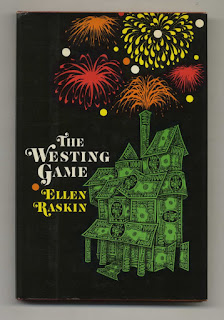RIP XIII #5: Jurgen

Why does this lady have this face? Jurgen, by James Branch Cabell I like weird Dover reprints of weird old books, so I picked this up somewhere a while back and it's been on the TBR pile. It's one of those fantasy stories written before Tolkien came along and everybody kind of standardized into the modern genre -- the era of Lord Dunsany and E. R. Eddison. So I thought it would be fun, and a good RIP title, but I was wrong. It was completely meh. Jurgen was first published in 1919, and somebody promptly tried to ban it, which made it enormously popular.* This is the "revised and definitive" 1926 version. Set in a sort of early modern folktale setting, the story features Jurgen, a pawnbroker and poet, whose bitter, naggy wife Lisa disappears into a cave and is presumably taken by a...devil? Maybe? (It's rather unknown until the end.) Jurgen ventures in and meets a cast of characters, most notably Mother Sereda (Time), and he is so...





